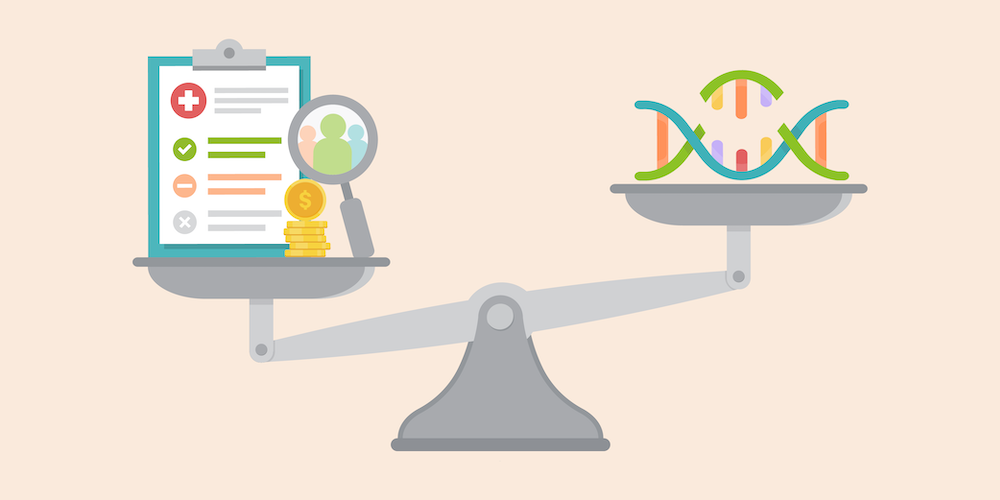Emerging Trends in Precision Medicine: A Look into Personalized Healthcare
By Caleigh Findley

Precision medicine is changing the face of healthcare by replacing a one-size-fits-all approach with treatments designed around the unique needs of each individual.
This shift is powered by remarkable advances in technology and genomics, which allow doctors to uncover deeper insights about patients and their conditions.
Read on to learn about the latest trends, the challenges of implementation, and what the future holds for this revolutionary approach to healthcare.
Personalization Through Genomics
Genomics has become a cornerstone of precision medicine. As sequencing technologies like next-generation sequencing (NGS) become faster and less expensive, genetic testing is no longer out of reach for most healthcare systems. This accessibility is enabling physicians to pinpoint the genetic underpinnings of diseases and develop more precise treatment plans.
For example, in cancer care, genetic profiling of tumors has paved the way for targeted therapies. These treatments, such as tyrosine kinase inhibitors or immunotherapies, are designed to attack cancer cells without harming healthy ones. Similarly, pharmacogenomics, which examines how genes influence a person’s reaction to drugs, is helping doctors in fields like cardiology and psychiatry prescribe treatments that are safer and more effective.
Integrating Lifestyle and Environmental Data
While genetic information lays a strong foundation, precision medicine goes further by incorporating a person’s lifestyle, environment, and even social circumstances. Wearable devices and mobile apps, which collect data on exercise habits, sleep quality, and dietary choices, are becoming vital tools in building a fuller picture of a patient’s health.
Take diabetes management, for instance. Devices like continuous glucose monitors allow patients and clinicians to analyze blood sugar trends in real time. Paired with AI-driven software, this data can inform highly personalized treatment plans that not only stabilize blood sugar levels but also empower patients to make healthier decisions.
Key Benefits: Improved Outcomes and Efficiency
When healthcare is tailored to individual needs, the benefits can be profound. Precision medicine eliminates much of the guesswork in prescribing treatments, which means fewer side effects, faster results, and better patient adherence. It also can potentially catch diseases earlier when they’re easier and less expensive to treat.
In drug development, precision medicine streamlines clinical trials by identifying participants most likely to respond to experimental therapies. This approach not only increases the likelihood of success but also speeds up the process of bringing new drugs to market—a win for patients, researchers, and the industry.
Challenges in Implementation
Despite its potential, precision medicine isn’t without hurdles. Many healthcare systems still struggle to integrate patient data from different sources, such as genetic tests, electronic health records, and wearable devices. Without a way to consolidate and analyze this information, delivering truly personalized care becomes difficult.
There’s also the issue of cost. Genetic testing and tailored therapies can be expensive, raising concerns about whether this approach is accessible to everyone or only a privileged few. Addressing these disparities will require innovative policies and partnerships that make precision medicine more affordable and inclusive.
Future Prospects: The Role of Technology and Collaboration
As technology continues to evolve, so does the potential for precision medicine. Artificial intelligence (AI) is already transforming how doctors analyze genomic and clinical data, uncovering patterns that would otherwise go unnoticed. Further, advances like CRISPR gene editing and liquid biopsies promise to make diagnostics and treatments even more precise.
Collaboration across sectors will be key to driving these innovations. Initiatives like the NIH’s All of Us Research Program, which gathers genetic data from diverse populations, are helping to ensure that the benefits of precision medicine reach everyone—not just those who can afford it.
A Personalized Path Forward
Precision medicine has the power to redefine healthcare as we know it. By embracing a model that considers a person’s genetic profile, lifestyle, and environment, we can deliver care that is not only more effective but also more equitable. The road ahead isn’t without challenges, but with the right investments in technology, policy, and collaboration, precision medicine can become a reality for all.
For healthcare professionals and industry leaders, the question isn’t whether precision medicine will transform healthcare—it’s how to prepare for this transformation and ensure its benefits are widely shared.
If you’re ready to leverage the power of precision medicine, Forma can help. Start the conversation today to learn more about how our strategists can elevate your marketing efforts and reach new audiences.






